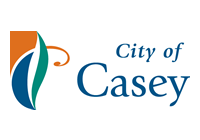Clyde North (Grices to Thompsons)
Household income quartiles
In Clyde North (Grices to Thompsons), the 'medium highest' quartile was the largest group in 2021, comprising 35% of households with income.
Households form the common 'economic unit' in our society. Household Income is one of the most important indicators of socio-economic status. With other data sources, such as Qualifications and Occupation, it helps to reveal Clyde North (Grices to Thompsons)'s socio-economic status and economic opportunities. Household income levels are not comparable over time because of the influences of economic change such as wage level fluctuations and inflation. The income quartile method is a powerful and objective way of looking at income data and in particular, how it is changing.
A detailed explanation of how Household Income quartiles are calculated and interpreted is available in specific data notes.
Learn more about the characteristics of low-income households here.
Derived from the Census question:
'What is the total of all wages/salaries, government benefits, pensions, allowances and other income the person usually receives?'
Households
| Household income quartiles | ||||||||
|---|---|---|---|---|---|---|---|---|
| Clyde North (Grices to Thompsons) - Households (Enumerated) | 2021 | 2001 | Change | |||||
| Quartile group | Number | % | Casey Foothills % | Number | % | Casey Foothills % | 2001 to 2021 | |
| Lowest group | 378 | 12.8 | 13.4 | 31001 | 4 | 13.7 | 10.4 | +374 |
| Medium lowest | 618 | 20.9 | 16.4 | 31002 | 7 | 22.0 | 16.9 | +611 |
| Medium highest | 1,047 | 35.4 | 24.4 | 31003 | 9 | 29.4 | 26.0 | +1,038 |
| Highest group | 916 | 31.0 | 45.8 | 31004 | 11 | 34.9 | 46.7 | +905 |
| Total Households | 2,960 | 100.0 | 100.0 | 33 | 100.0 | 100.0 | +2,927 | |
Source: Australian Bureau of Statistics, Census of Population and Housing (opens a new window) 2001 and 2021. Compiled and presented by .id (opens a new window)(informed decisions).
(Enumerated data)
| Household income - Quartile group dollar ranges | |||||||
|---|---|---|---|---|---|---|---|
| Calculated from income data for Victoria | Weekly income by Census year | ||||||
| Household income ranges | 2021 | 2016 | 2011 | 2006 | 2001 | 1996 | 1991 |
| Lowest group | $0 to $881 | $0 to $740 | $0 to $624 | $0 to $539 | $0 to $426 | $0 to $340 | $0 to $309 |
| Medium lowest | $882 to $1,756 | $741 to $1,416 | $625 to $1,213 | $540 to $1,021 | $427 to $812 | $341 to $640 | $310 to $575 |
| Medium highest | $1,757 to $2,946 | $1,417 to $2,394 | $1,214 to $2,148 | $1,022 to $1,682 | $813 to $1,379 | $641 to $1,075 | $576 to $936 |
| Highest group | $2,947 and over | $2,395 and over | $2,149 and over | $1,683 and over | $1,380 and over | $1,076 and over | $937 and over |

Compiled and presented in profile.id by .id (informed decisions).

Compiled and presented in profile.id by .id (informed decisions).
Dominant groups
Income quartiles allow us to compare relative income-earning capabilities across time. Analysis of the distribution of households by income quartile in Clyde North (Grices to Thompsons) compared to Casey Foothills shows that there was lesser proportion of households in the highest income quartile as well as a lesser proportion in the lowest income quartile.
Emerging groups
The most significant change in Clyde North (Grices to Thompsons) between 2001 and 2021 was in the medium highest quartile which showed an increase of 1,038 households.
